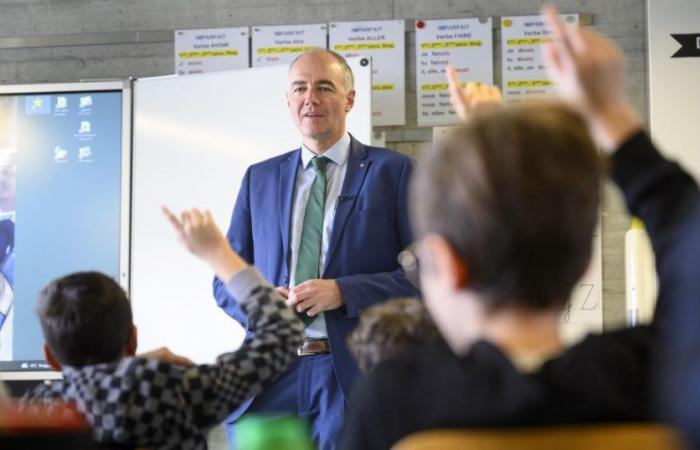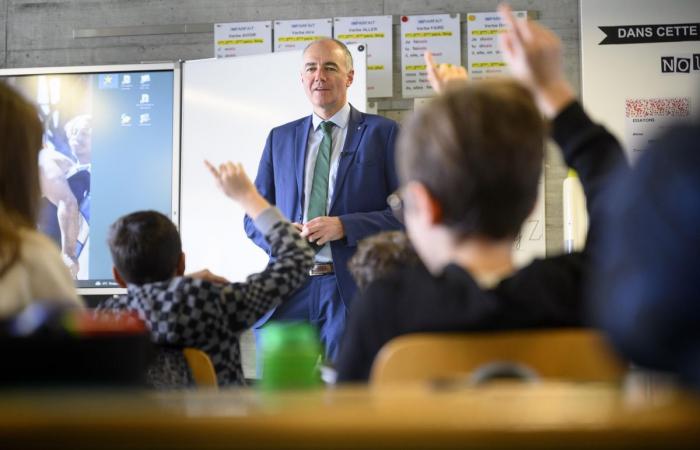– “Continuous school cannot become widespread”
Although he considers the Neuchâtel experience attractive, the vice-president of the Conference of Cantonal Directors of Public Education remains cautious.
Published today at 9:29 a.m.
Christophe Darbellay: “Parents’ interests are very heterogeneous.”
KEYSTONE
Subscribe now and enjoy the audio playback feature.
BotTalk
Two schools in the city of Neuchâtel have been testing the school continuously since the start of the school year, with a range of sporting and cultural activities after school hours. A model for the future in Switzerland? Update with Valais State Councilor Christophe Darbellay (Le Center), vice-president of the Conference of Cantonal Directors of Public Education (CDIP) and president of the Intercantonal Conference of Public Education of French-speaking Switzerland and Ticino (CIIP).
Are there already such projects elsewhere in French-speaking Switzerland?
Yes, absolutely. In Valais, in the Val d’Anniviers for example, the continuous timetable has existed for almost fifty years. It was notably dictated by the geography of the region, which makes the journeys to school sometimes very long. This is also a model that exists in other countries. It is widely distributed in Germany, among other places.
Is this an interesting model?
Yes, as long as it meets a parent’s need. This may be due, as I said, to questions of geography or sociology. But parents’ interests are very heterogeneous, and all situations must be taken into account. In addition, the entire context must be adapted. If students finish at 2:30 or 3 p.m., there must be child care or after-school activities available until parents finish work.
Could the Neuchâtel project be generalized?
Although it is attractive, I am not at all convinced that this model can become widespread, with a few exceptions. Typically in outlying regions, with low population density and decentralized housing. Competence in terms of school organization is often the responsibility of the municipalities and is rarely centralized at the cantonal level.
Does the CDIP, of which you are vice-president, encourage ongoing school projects?
Competence in this area is generally municipal and sometimes cantonal. Switzerland is federalist: it is not French-style national education. Consequently, the federal or intercantonal levels do not get involved in the day-to-day school organization.
Did you find an error? Please report it to us.
- -






